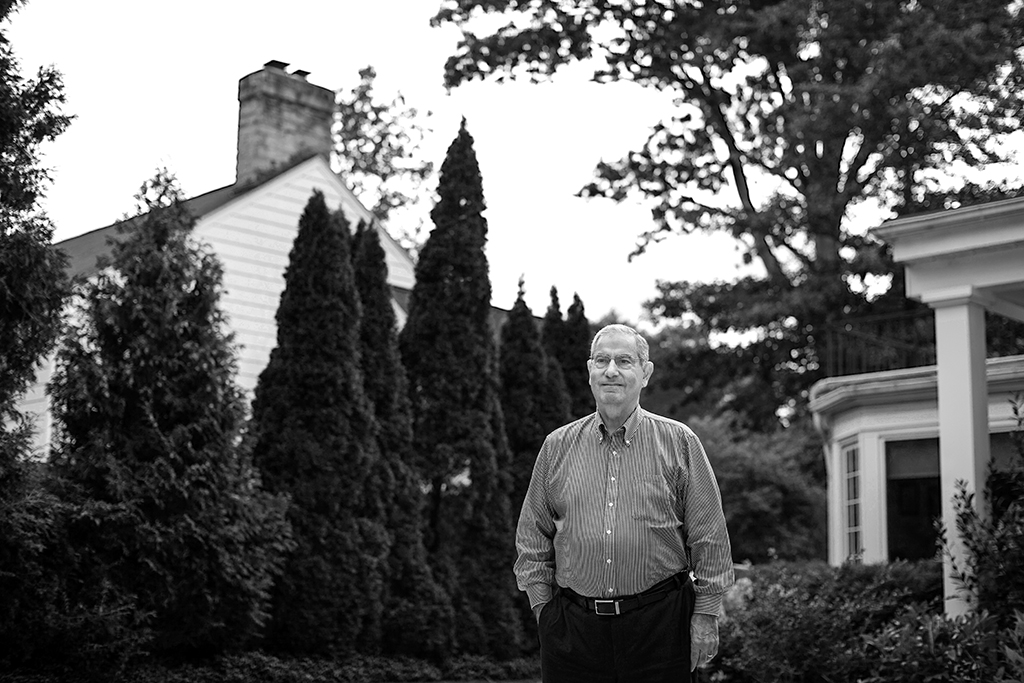Dr. Faramarz Ismail-Beigi
When asked what was compelling about the mission of Berea College, Dr. Faramarz Ismail-Beigi ’62 offered a one-word answer: humanity. He went on, then, to reference a large carpet that hangs on the wall of the United Nations building in New York, and its inscription of “Bani Adam,” by 13th-century Iranian poet Saadi Shirazi.
The poem begins:
Human beings are members of a whole,
Since in their creation they are of one essence.
Dr. Ismail-Beigi reflected on the words and mused about their similarity to the biblical verse that forms the motto of Berea College: God has made of one blood all peoples of the earth.
“All of humanity is connected to one another,” he said, “and humans are all from one blood. It is that universal value that is the most important, that inclusive value. It’s not where you’re from, what you look like, what your skin color is. It’s that human beings have value, no matter what. If we have everybody listen to that, we would be in a better place.”
He spoke from Cleveland, where, as a doctor and professor, he divides his time between teaching at Case Western Reserve University School of Medicine and caring for veterans at the Cleveland Veterans Affairs Medical Center. It’s at the latter, where he finds patients who are often sicker and less financially able than the patients he encounters at the university hospital, that his sense of common humanity is strengthened.
The same humanitarian impulse drove Ismail-Beigi to establish a scholarship at Berea College in 2017 for women in science, technology, engineering and math (STEM) majors. Though the gift is recent, the idea to invest in the students of his alma mater is not new.
Berea was a wonderful experience, not only educationally, but in every other way. I didn’t just learn chemistry or physics. I learned what it means that God created all people from one blood.
Dr. Faramarz Ismail-Beigi
“It’s been with me for 40-some years,” he said. “Berea was a wonderful experience, not only educationally, but in every other way. I didn’t just learn chemistry or physics. I learned what it means that God created all people from one blood.”
One incident in particular has etched the idea into his consciousness. As a young man, Ismail-Beigi came from Iran to Kentucky two years after his older brother, Farhad ’60. When Ismail-Beigi arrived in the late 1950s, he encountered what he describes as “an ocean of segregation.” Berea College was an integrated island within this ocean, but he felt the effects of racial tensions when he left campus with the soccer team. After three hours on the bus, the integrated team arrived in northern Tennessee, where they received a rude welcome.
“We got off the bus,” he said, “and they said they didn’t want to play with us. And because of that, we didn’t want to play with them, either. That was a defining moment, one where we valued each other and a commitment to racial equality. We all got back on the bus and rode three hours more.”
Ismail-Beigi has applied what he learned at Berea throughout his life and career, treating people with empathy and without judgment. Berea’s Great Commitments had not yet been articulated when Dr. Ismail-Beigi attended, but upon review, he felt he had internalized them from his experiences in college.
“Berea College made me a much better person,” he said. “It’s good for the students to have people from different parts of the world and different races at Berea so they can see that people are the same. It’s a living example of what the school’s motto is—if you want to listen to it, if you want to take it in.”


